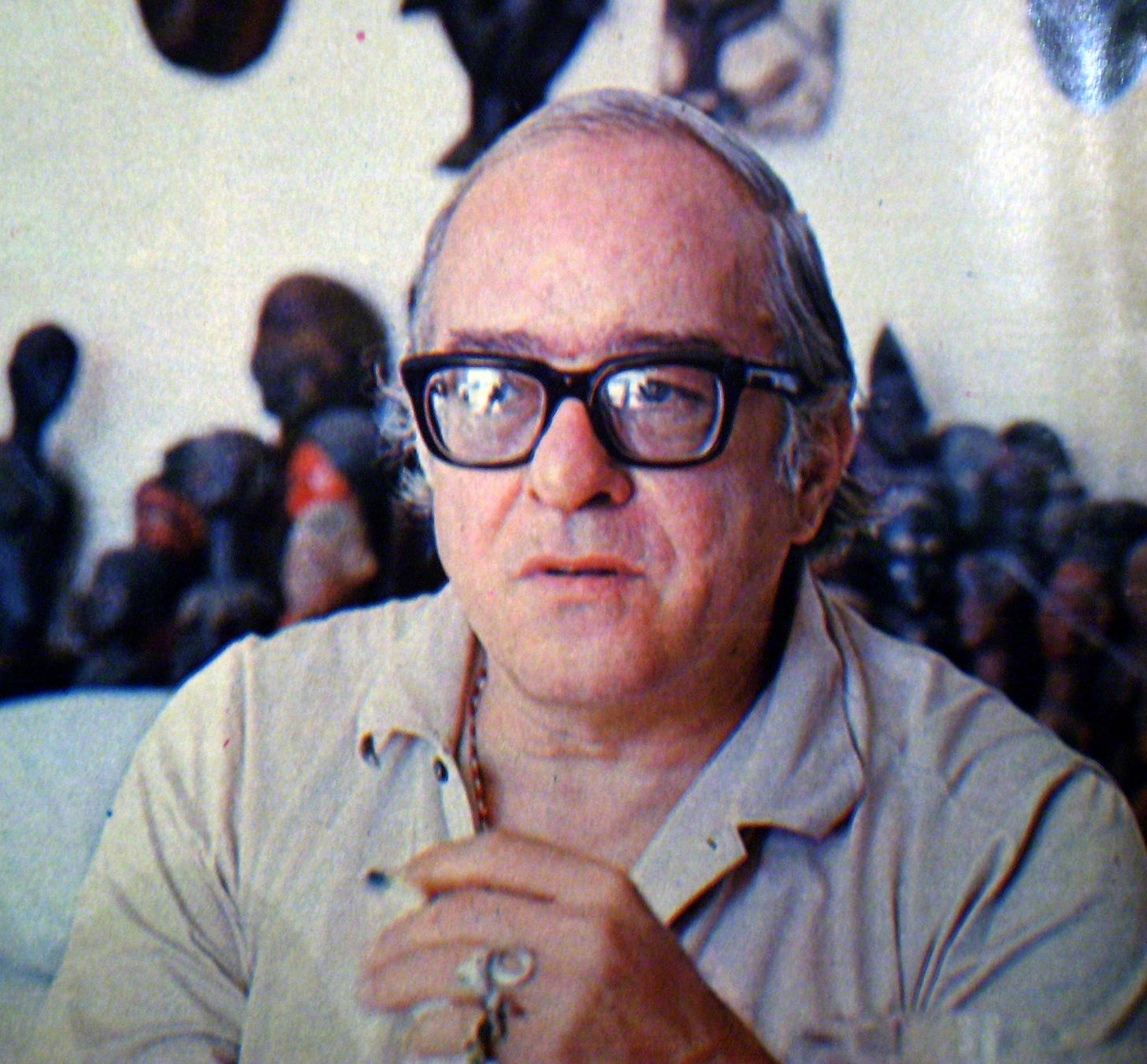Vinícius de Moraes and Baden Powell: Os Afro Sambas (1966)
The collaboration with the virtuoso guitarist Baden Powell on a brilliant record that became one of the touchstones of Brazilian music. Plus: Vinícius e Toquino (1970)
There are records I want to write about, but the topic seems far too overwhelming for a brief post. This is one of those.
It’s impossible to be write about Vinícius de Moraes—undoubtedly one of the most fascinating people of the last century—without veering off into an almost unlimited number of diversions. He was a hard-drinking, nine times-married former career diplomat, playwright, essayist, and poet. His play Orfeu da conceição was adapted into Black Orpheus, the 1960 film that brought Bossa Nova and samba to international audiences. He’s best known outside Brazil as the lyricist for the most popular of the songs associated with the Bossa Nova movement, through his collaboration with Antonio Carlos Jobim (like "Chega de Saudade" and "The Girl From Ipanema”).
After being perhaps the most famous cultural figure in Brazil, in 1966, Vinicius stepped into the spotlight and began an unlikely singing career. His brittle baritone voice wasn’t anyone’s idea of beautiful or powerful, but the deficiencies in technique disappeared in light of the strength of his songs and melodies.
He collaborated with the virtuoso guitarist Baden Powell on a brilliant album, Os Afro Sambas, a record that became one of the touchstones of Brazilian music. While the global pop charts were brimming with super-catchy lilting or driving sounds of Brazil’s Bossa and post-Bossa exports (sourced from Marcos Valle’s “Samba de Verão” or Jorge Ben’s “Mas Que Nada”), Powell and Moraes delivered something more substantial.
Influenced heavily by the percussion and melodies of candomblé and the black music of Bahia, and utilizing the voices of the singers of Quarteto em Cy, Os Afro Sambas is deep, evocative and, in parts, definitely spooky. Wikipedia writes:
In the mid-1960s Vinícius was fascinated by an LP of samba de roda songs with candomblé influences from Bahia. Baden Powell had also gone to Bahia and heard the songs of the Bahian candomblé. From this mutual enchantment with samba and religiosity found in Bahia, the Afro-sambas project emerged. The eight songs (11 in the live show) have a rich and unique musicality: a mix of candomblé and umbanda instruments (like atabaques and afoxés) with timbres common to Brazilian music (agogôs, the flute, and tambourines).
This is an album that sounds like nothing else from the time, and touched off a roots movement in music that lasted until well into the 1970s. Every song on the album has become a well-known standard in Brazil, and you’ll find countless versions of the opening track “Canto de Ossanha” and “Tempo de amor" especially. The latter was covered memorably by the inimitable Elis Regina.
I’ve returned to this album so many times since I first heard it about a dozen years ago. It’s one I always recommend to people just diving into Brazilian music. At just over a half-hour, the music goes by so quickly.
BONUS: He found a new collaborator in the young guitarist Toquino in 1970, and their partnership lasted the last 11 years of his life, introducing dozens of songs to the canon of Brazilian popular music and samba. The first album with Toquino is the most pop-friendly and intricately produced; it’s breezy and enjoyable.





You MUST keep pulling these gems to the surface....
This was a great counter to the Duke’s Afro Bossa. The only weakness to the Duke’s approach was too much cowbell! 😎 In all seriousness, some of Duke’s sidemen are just banging on percussion: not playing clavé! You’ll never find that in a Latin band. The Rhythm in Os Afro Sambas is exceptionally clean and tight and propulsive without loud percussion.